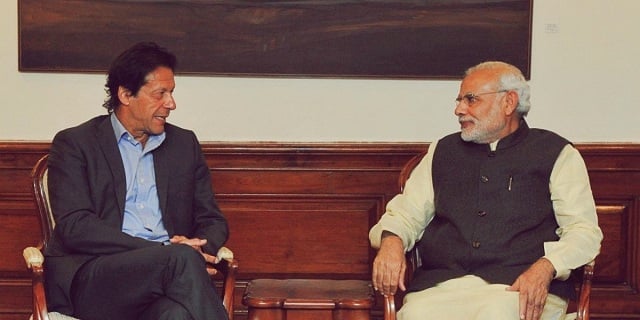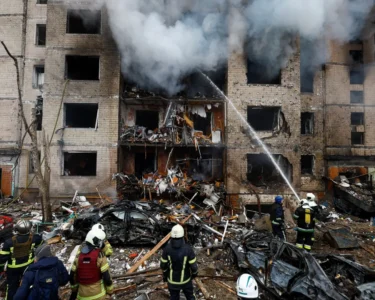Trade with India has been an obsession; like an unrequited romance for the people of Pakistan; fraught with dangers as well as opportunities. 70 years down the road when Pakistan and India have fought three wars; two near war like situations, a nuclear arms race; missile development and accusations of fomenting rebellion in each other “soft bellies”; states and provinces not happy with the center or the union; what ground realities and prospects one can expect with reference to any trade ties between Pakistan and India; is a difficult question.
On the plus side; the two countries share a South Asian way of thinking and way of life. Irrespective of the peculiarities of beliefs and customs; that goes without saying that the people of both the countries think and look alike. They can be easily confused as the “other”.
This similarity infact sets the pace for the pace for any trade activity between the two countries provided they are able to come over their differences; political, diplomatic and those of perpetual distrust for the other.
Inhabitation in a somewhat similar climatic zone sets the favorable ground for similar food preferences and apparel. An average Pakistani in sweltering heat would prefer yogurt and so will be the Indian counterpart in similar climatic setting. Likewise cotton clothing which allow the air to pace through to provide the human body a favorable kind of ventilation will be preferred on both sides of the border.
That similarity further progresses towards value addition to create a trade proposal. If an investor knows that he has the opportunity or access to a favorable market for his products; he would plan accordingly; trying to make optimum use of the “economies of scale”. Pakistan regions which are separated only by the international border or the Line of Control provide fertile ground for such trade proposal.
Must Read: Top 10 richest people in Pakistan
Past 15-year trade between India and Pakistan in the domain of vegetables like potato and onion, Hilal slaughtered beef and trade in fruits between the Indian occupied and Pakistani controlled Kashmir reveals that creation and identification of demand on the either side of the border has been instrumental in precipitating the trade proposal and opportunity. That has happened purely on the basis of market mechanics and it has nothing to do with anything official, except for the fact that the governments at that time preferred to allow that market activity.
To create further opportunities for trade between the two countries it is imperative that such opportunities are developed; partially as an official effort, while the rest may be left to the private sector to ferment and develop.
Here it is imperative that the “negatives” of the scenario may be looked into with the same zeal; aimed to find solution to the problem. Pakistan and India while having periods of peace between; when even the people of creative arts have easily treaded their path between the cultural capitals of the two countries have frequent breakdowns due to some false flag incident along the LOC or in any Indian city or any spy nabbed in third country.
Such bouts of mistrust have been responsible for longer trade outages between the two countries. While the two countries do not have the bones to go for an out war between themselves; the attrition has caused stress for all concerned. While for India whose trade volume is far higher globally when compared to that of Pakistan; for Pakistan any trade outage in its neighborhood or SAARC means missed trade opportunities.
To add to this negative atmosphere has been the trade arrangements on which both countries as signatories to the new world trade order which is referred to as World Trade Organization or WTO. The WTO binds its signatories like Pakistan and India to accord each other the status of “Most Favored Nation” or MFN status. For normal nation states which also happen to be close by; it is a normal clause. But for “abnormal” ones like Pakistan and India it is like selling out to the enemy.
Many a debate; especially in Pakistan have centered around that argument that if trade is opened between the two states the auto industry or the textile industry is going to be wiped out of existence. In that thought process there is seldom any semblance of maturity or even saner thinking at work.
Triggered by such thought process there is never a dearth of economists and geo strategists who are ready to equate any trade with nightmare scenario for the Pakistani agriculture and industry. To undo these aspects of our national thought; what is needed might not be a radical solution. Rather what can create an atmosphere where things can gradually in the right direction are confidence building measures on both sides of the border.
Towards that end, the business houses like chambers of commerce and federation of industry have. Bigger responsibility to undertake. Frequent visits between the above-mentioned trade bodies if on one hand can mellow jingoistic thoughts; on the other hand, it can inspire the prospective traders to have a fresh more objective look at their own standing in the regional or world market.
Once that done; such an initiative will go a long way in creating a growth opportunity and prosperity as against the rise of radical thought. Radical thoughts thrive on hunger. A filled belly cannot think of killing anyone. When a country brand has brand loyalty across the border; anyone thinking of bombing the other would think twice before undertaking such a crazy venture.
A mix of inter nation confidence building measures linked with trade bodies exchange of visits can change the things on ground. Last but not the least media has a very important role to play in breaking the ice. Instead of stoking fire; the media should organize exchange of visits so that stances are mellowed down to the point where people are ready to talk with each other.
Here we can learn from Europe post world war II. The continent was devastated but it rose up to first form a military alliance and then a trade one. Today they stand united on most of the geo political issues. The recent joint exercises organized by Russian military where both Indian and Pakistani ground forces are also engaged in war games is a step in the right direction.
Given the developing world trade scenario; it is high time that Pakistanis give way to rational thinking geared towards trade and diplomacy of trade.




